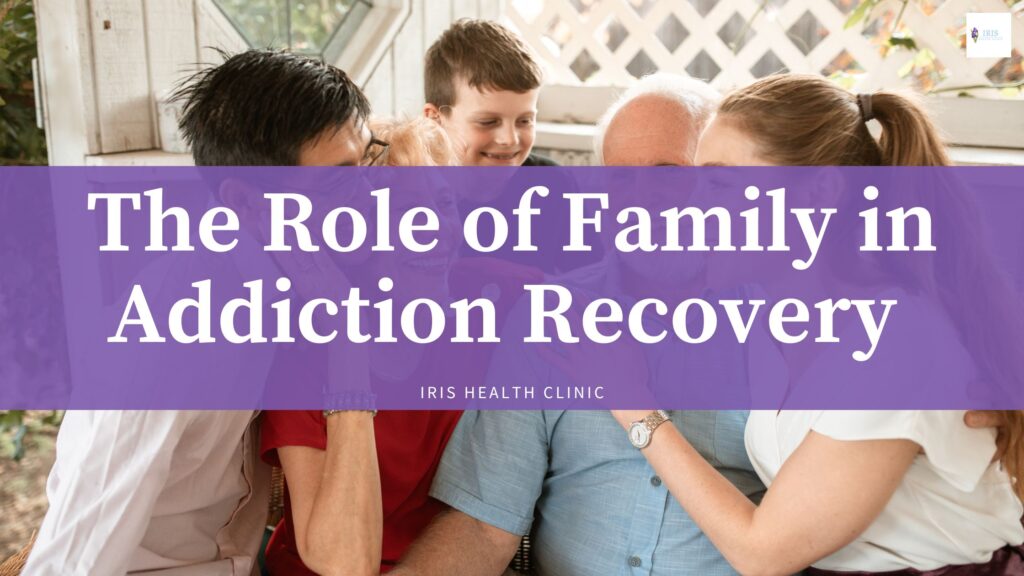Addiction is a complex issue that affects not just the individual but everyone close to them—especially their family. The recovery process is often challenging, but the involvement of the family can significantly improve the chances of success. A supportive family environment helps to rebuild trust, foster communication, and create a strong foundation for long-term recovery.
Understanding Addiction and Its Impact on Families
Addiction is more than just a personal struggle; it often becomes a family issue. When a loved one struggles with addiction, the emotional, financial, and physical toll on the family can be overwhelming. Misunderstandings, blame, and frustration may arise, creating a cycle of stress that hinders recovery.
However, families can play a pivotal role in breaking this cycle.
By understanding addiction as a disease rather than a moral failing, families can provide the empathy and support necessary for healing. This is where professional help, such as family therapy for addiction, becomes invaluable. Through guided sessions, families can address their challenges, improve communication, and learn strategies to support their loved ones better.
The Role of Family in Recovery
- Providing Emotional Support
Recovery is a journey that requires resilience. Having a family that offers unconditional love and emotional support can boost the morale of someone battling addiction. Knowing that they are not alone fosters a sense of belonging and motivates them to stay committed to their recovery goals.
- Rebuilding Trust
Addiction often erodes trust within families. Rebuilding this trust is an essential part of recovery. Open and honest communication, facilitated by professional guidance, helps to mend broken relationships.
Stress disorder treatment may also be necessary for family members who have experienced trauma due to their loved one’s addiction.
- Creating a Stable Environment
A stable and supportive home environment can make a world of difference. Families can help by setting healthy boundaries, establishing routines, and encouraging a positive lifestyle. This consistency provides the recovering individual with a sense of security, reducing the risk of relapse.
- Participating in Treatment
Family involvement plays crucial role in the success of various mental health treatment programs, such as eating disorder treatment or addiction treatment. Family therapy sessions are designed to address underlying issues contributing to the disorder, improve family dynamics, and foster a deeper understanding of the recovery process. By actively participating, families gain valuable insights into the challenges of eating disorders or addiction, and learn effective strategies to support their loved one’s recovery journey.
Iris Health Clinic offers specialized programs that focus on integrating family support into addiction treatment plans.
Benefits of Family Therapy for Addiction
Family therapy is an effective approach in the recovery from addiction. It not only benefits the individual struggling with addiction but also provides much-needed support for family members. Here are some key advantages:
- Improved Communication: Therapy helps family members learn to express themselves in constructive ways, fostering understanding and reducing conflicts.
- Conflict Resolution: Through professional mediation, families can resolve lingering disputes and rebuild their relationships.
- Education and Awareness: Therapy provides families with the knowledge they need to understand addiction and how to support recovery effectively.
- Emotional Healing: Addiction can inflict emotional scars on everyone it impacts. Addiction can leave emotional scars on everyone affected. Family therapy allows for collective healing, ensuring that all members move forward together.
Addressing Stress Disorders Within the Family
Addiction doesn’t exist in isolation; it often triggers stress disorders among family members. Family members, including parents, siblings, and spouses, may experience anxiety, depression, or even post-traumatic stress disorder (PTSD) due to the chaos caused by addiction. Recognizing these challenges and seeking stress disorder treatment is crucial.
A healthy family is better equipped to provide the support their loved one needs during recovery.
At Iris Health Clinic, we emphasize a holistic approach that considers the well-being of the entire family. By addressing both addiction and its ripple effects, we create a comprehensive path to healing.
5 Best Tips for Families Supporting a Loved One in Recovery
If you’re supporting someone in their recovery journey, here are a few tips to keep in mind:
- Educate Yourself: Understand addiction, its underlying causes, and the steps involved in the recovery process. The more knowledge you have, the better you can support your loved one.
- Encourage Professional Help: Encourage your loved one to pursue professional treatment. Family therapy sessions can be beneficial.
- Practice Patience: Recovery takes time. Stay patient and take the time to celebrate small milestones as you progress.
- Take Care of Yourself: Supporting others can be emotionally draining. Remember to prioritize your own mental and physical health. Supporting someone else can be emotionally taxing. Don’t forget to prioritize your own mental and physical health.
- Communicate Openly: Foster an environment where your loved one feels safe to share their thoughts and struggles without judgment.
Conclusion
Addiction recovery is a journey that no one should face alone. Families play a crucial role in providing the love, support, and stability required for lasting recovery. Through tools like family therapy for addiction and comprehensive care approaches, families can help their loved ones reclaim their lives while also healing themselves.
If your family is struggling with addiction, do not hesitate to seek professional guidance. At Iris Health Clinic, we are dedicated to supporting families on this transformative journey. Contact us today to learn more about our programs and take the first step toward healing together.

